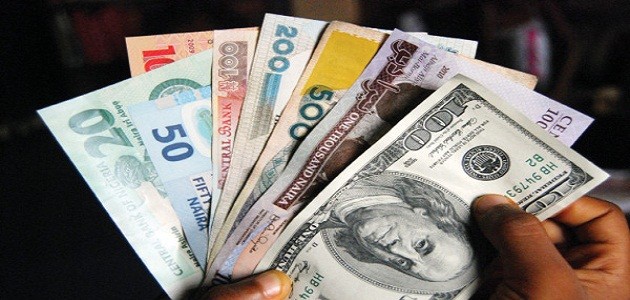
United States Dollar on weakened against the naira on Friday exchanging at N950/$ on the average in the parallel market.
This represents a N175 gain for the local currency compared to the N1,125/$ it traded for on Thursday.
Simultaneously, the official Investors and Exporters (I&E) window reflected renewed vigour, trading at an impressive rate of N776.14 per US dollar yesterday as it appreciated from the N793.28/$1 at the close of Thursday’s trading session.
Analysing intraday data provided by FMDQ, the highest spot rate observed was N1,100.60/$1, while the lowest spot rate recorded was N700/$1.
Moreover, the official I&E window reported a daily volume turnover of $98.82 million, indicating a 27.41 per cent decrease when compared to the previous day’s turnover of $136.11 million.
This is the second day of recovery for the Naira following the Central Bank of Nigeria’s commencement of the clearance of some of its FX backlog on Thursday, marking a pivotal effort to alleviate the mounting pressure in the foreign exchange market.
This impressive ascent by the Naira yesterday in the parallel market amounted to a staggering 18.42 per cent increase in its value within a single day, leaving speculators grappling with unexpected losses as the parallel market becomes inundated with US dollars.
The ongoing efforts to bridge the gap between the official and parallel markets have yielded significant results. The arbitrage between these markets has notably contracted from N389 per US dollar to N174.
An analysis of the Naira’s trajectory in the parallel market this week unveils a fluctuating trend. It commenced the week trading at N1,110 on Monday, experienced a slight dip to N1,180 on Tuesday, and then exhibited a positive trend on Wednesday and Thursday, closing at N1,175 and N1,125, respectively. The most astounding surge occurred yesterday, with the Naira selling at N950/$.
Multiple parallel market operators have attested to the surge in dollar supply, leading to losses for those who had previously acquired dollars at higher rates.
In contrast, the official I&E window exhibited a trading performance that ended the week as follows: Monday, N993/$1; Tuesday, N815/$1; Wednesday, N786/$1; Thursday, N793/$1; and Friday, N776/$1.
An official from the CBN, who wished to remain anonymous, confirmed the settlement of FX forward contracts through 14 banks on Wednesday. He further assured investors that the remaining FX forward contracts would be addressed in the forthcoming week.
The CBN’s official statement to THISDAY regarding the FX forward settlement was as follows: “Yes, I can confirm to you that we have started clearing the FX backlogs through 14 banks on Wednesday. Whatever is left unsettled would be cleared next week. We thank everyone for their patience. We are hopeful that in the coming days, the pressure you have seen in the FX market would ease.”
A US multinational financial services firm, JP Morgan, had on Wednesday projected that the naira would trade at N850/$ at the Investors’ and Exporters’ Forex window before the end of 2023.
However, the US bank said the recent efforts to restore a flexible FX regime may be sustained given the willingness to accompany it with tighter monetary conditions.
“The interbank FX rate has risen in recent days to over 900, from 750, thereby significantly closing the gap to the parallel rate which is now just above 1,000.
“We expect USD/NGN to eventually move lower towards 850 by year-end as the combination of tighter policy, as well as more attractive rates and FX levels deter incremental dollarization and perhaps attract some foreign capital,” JP Morgan asserted.
In addition to the policy actions, JP Morgan averred that authorities may need to consider further measures such as requiring commercial banks to adhere to regulatory limits on FX net open positions.
Other measures, JP Morgan said, include exploring the introduction of a cash reserve ratio on FX deposits, as well as the issuance of dollar assets onshore.
On the fiscal side, the financial services firm advised the government to require all taxes to be paid in local currency.
It added that some of the measures may have already been incorporated in the federal government’s forthcoming revision of guidelines relating to the operations of the forex market.
JP Morgan also urged oil exporting companies to consider selling forex proceeds on the interbank market, rather than directly to the Central Bank of Nigeria.
The company also said the willing-buyer-willing-seller nature of the foreign exchange market is contributing to the extreme volatility in the FX market.
It said the willing-buyer-willing-seller model impeded price discovery, so the financial regulator should reconsider the strategy.
The bank also commented on Nigeria’s plan to obtain $10 billion in foreign currency inflows in the next few weeks to ease liquidity in the foreign exchange market.
It added that the ability of the government to raise such an amount may be challenging given the “US$3 billion expected from Afrexim has been delayed for months, while Nigeria LNG Limited’s historical dividends to the government have fallen well short of US$2 billion annually.”




fake company
crypto mining